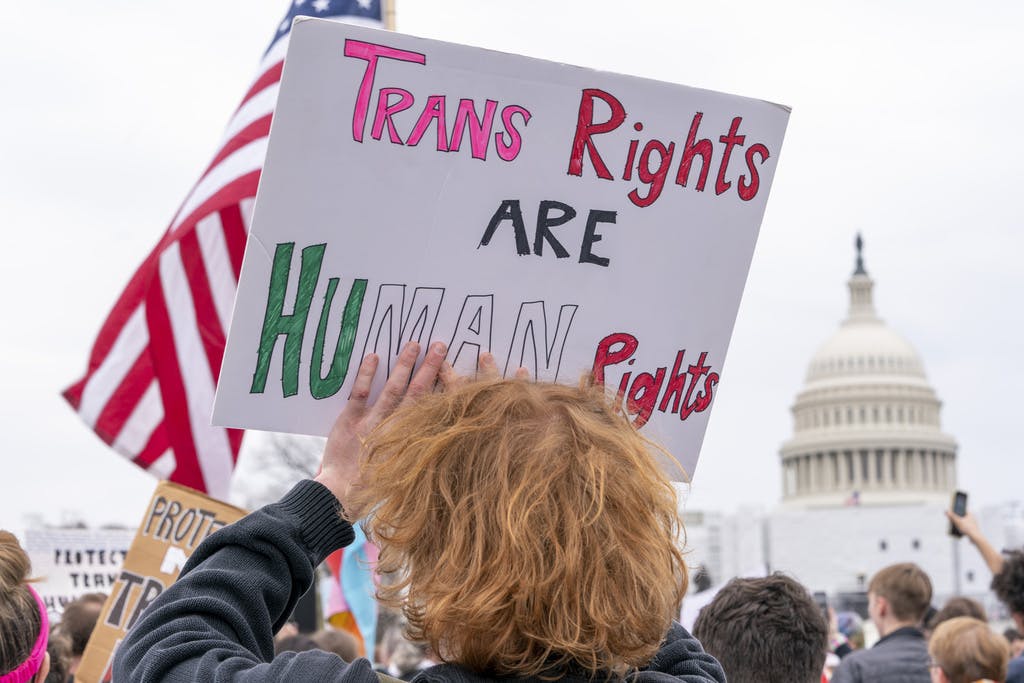World Health Organization, ‘Under the Cover of Darkness,’ Plans February Meeting on New Global Transgender Guidelines
Though not governing law, the guidelines would likely be weaponized against the more than 20 states that have passed restrictions on gender transitions for minors, an analyst tells the Sun.

The World Health Organization is set to meet in February to discuss transgender healthcare guidelines on five major topic areas expected to have ripple effects globally.
The meeting, which will take place at the organization’s headquarters at Geneva, Switzerland, from February 19-21, was announced quietly ahead of the holiday season in December. It comes as another highly influential medical organization, the American Academy of Pediatrics, faces legal fire for its policies on gender transition services for minors, as the Sun has reported.
The WHO’s topic areas will range from the “provision of gender-affirming care, including hormones,” to “health policies that support gender-inclusive care,” to “health workers’ education and training” on gender care, and “legal recognition of self-determined gender identity,” according to the organization.
The WHO is already facing backlash as a petition with nearly 9,000 signatures cites “grave concerns” about the guidelines, including a “biased guideline development group,” the brief public consultation period that ends Monday, and a rushed overall timeline.
“The majority of the panel members have expressed strong views in favor of hormonal and surgical interventions for transition, dismissed known and potential risks associated with these interventions, and denigrated psychotherapeutic approaches as ‘conversion therapy,’” the petition notes, adding that the panel does not include any detransitioners, experts in child and adolescent development, or critics of the gender affirmation model.
Though the WHO doesn’t develop international law, should the guidelines be developed, “it’s as if it’s official policy,” a senior research fellow at the Heritage Foundation, Jay Richards, told the Sun.
“For decades, agencies of the UN have been developing curricula, and materials and guidelines and policies which get treated as so-called soft law,” he said, adding that countries with fewer resources, where the guidelines are attached to various forms of aid, are likely to be the most affected. “This will get treated as soft law in policy, and there will be carrots and sticks attached to it, no doubt, if the World Health Organization is allowed to do this.”
Despite a brief mention of the upcoming guidelines last summer, the WHO’s sudden comment period ahead of Chanukah, Christmas, and New Years, as well the composition of the development panel itself, are cause for deep concern, Mr. Richards said.
“A very large number of the individuals on this committee are members of WPATH,” he said, adding that the World Professional Association for Transgender Health is and always has been an “advocacy organization” that fights for a “radical” approach on gender issues.
“So it’s not like the WHO is even trying to set up the committee with the appearance of some kind of balance and objectivity — it’s just a frankly one-sided ideological committee from the very beginning, and I can only imagine maybe they would be able to do this while no one is paying attention,” Mr. Richards said.
While some of the guideline topics are feasibly within the WHO’s purview, others, like establishing a legal recognition of self-determined gender identity, are “explicitly political goals,” Mr. Richards said.
The WHO is trying, he said, “in part by fiat and hoping to do it essentially under the cover of darkness, things that might be within their relevant jurisdiction but also things that the WHO has absolutely no expertise or authority on, such as the legal status of particular concepts.”
To quickly establish these guidelines while many countries, national health organizations, and states are currently in a “very robust debate” on these issues is “extraordinary,” he added.
“For the World Health Organization to preemptively decide that they’re going to dictate guidelines at an international level, using an explicitly biased and ideological committee, I think is just unconscionable,” he noted. “I think it’s something frankly that member states in the UN ought to pay attention to very, very closely.”
Though the WHO doesn’t govern American states, there is “no doubt in my mind,” Mr. Richards said, that the guidelines would be used as “rhetorical power” in lawsuits and publicity campaigns against the more than 20 states that have restricted gender transitions for minors.
A representative of the WHO told the Sun, “we’ll know more after the meeting takes place,” and noted that the guidelines would be developed by a group “with members from all WHO regions.”

